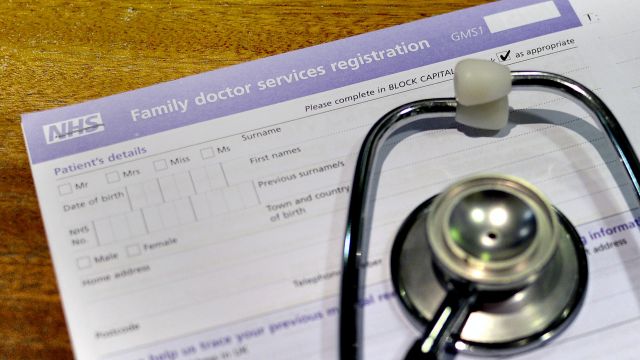Researchers conducted an analysis of studies which examined whether or not patients went on to receive a cancer diagnosis following their GP recording a “gut feeling” their patient had cancer.
The study, published in the British Journal of General Practice, found that when GPs had a gut feeling that their patient had cancer they were significantly more likely to later receive a diagnosis.
The gut feeling was more predictive as familiarity with the patient increased, and also increased with a GP’s experience, the study found.
Our findings emphasise that GPs collect and interpret a large amount of information about their patient in a short period of time
Gut instincts are often hard to track by researchers.
But the study examined data from 12 papers and four web resources on a gut feeling felt by family doctors.
A gut instinct was described as an uneasy feeling typically triggered by verbal and non-verbal cues from their patients.
The pooled odds of a cancer diagnosis were four times higher when gut feelings were recorded, according to the researchers from the University of Oxford and the London School of Economics.
“A cancer diagnosis was more likely in patients for whom the GP had a gut feeling compared with patients for whom the GP experienced no gut feeling,” the authors wrote.
They wrote that guidelines on suspected cancer for GPs suggest that family doctors should trust their own and their patients’ intuition.
But the authors wrote that some GPs have been rejected for referring their patients due to gut instincts.
They said: “GPs reported varying success of integrating gut feelings into clinical practice: some were able to refer patients based on gut feeling, but others recounted instances when referrals made because of a gut feeling had been rejected by specialist colleagues due to a perceived lack of clinical evidence.
Non-verbal cues can often indicate that something is wrong – not necessarily what the patient has made an appointment to speak about
“These patients were later diagnosed with cancer, suggesting that earlier diagnosis may have been possible.”
Brian Nicholson, clinical researcher at the Nuffield Department of Primary Care Health Science at the University of Oxford, said: “We found research that suggests that gut feelings are more effective at identifying people with cancer than the symptoms and signs used in guidelines.
“We wanted to understand what leads to a GP having a gut feeling in case the guidelines could be improved.
“Our findings emphasise that GPs collect and interpret a large amount of information about their patient in a short period of time.
“Together, these pieces of information can lead to a gut feeling that something is wrong. Only some of this information is included in current guidelines.”
Commenting on the study, Dr Jonathan Leach, honorary secretary of the Royal College of GPs, said: “GPs consider a huge variety of factors when making a patient diagnosis. As well as more obvious physical symptoms, non-verbal cues can often indicate that something is wrong – not necessarily what the patient has made an appointment to speak about.
“This ‘gut feeling’ or intuition is something that GPs develop by having close, trusting relationships with patients that are often built over time, and isn’t something that should be ignored.
“As this paper suggests, a GP’s ‘gut feeling’ can be useful in identifying potential serious health conditions, such as cancer, even when patients don’t meet the official criteria for referral to specialist care.
“This is one reason why GPs need some flexibility in being able to refer patients where they are concerned as well as better access to investigations in the community, and the appropriate training to use them, so they can pursue their intuition, and take the results into account when making an informed decision to refer a patient.”
The study comes as a report from the Less Survivable Cancers Taskforce called for investment to speed up the detection and diagnosis of the UK’s deadliest cancers.
We urgently need a whole system approach to diagnosing the less survivable cancers earlier and faster
The report highlights how cancers of the lung, liver, brain, oesophagus, pancreas and stomach are more likely to be diagnosed at a later stage.
Together these cancers have a five-year survival rate of just 16% due to a “legacy of neglect and underfunding”, the task force said.
Anna Jewell, of the Less Survivable Cancers Taskforce, said: “Less survivable cancers have been left behind for far too long and the time from diagnosis to death for anyone who has one of these cancers is brutally short.
“We urgently need a whole system approach to diagnosing the less survivable cancers earlier and faster.
“In addition to increased public awareness of symptoms, GPs need support in terms of resources and equipment as well as access to rapid diagnostic centres for their patients.”







